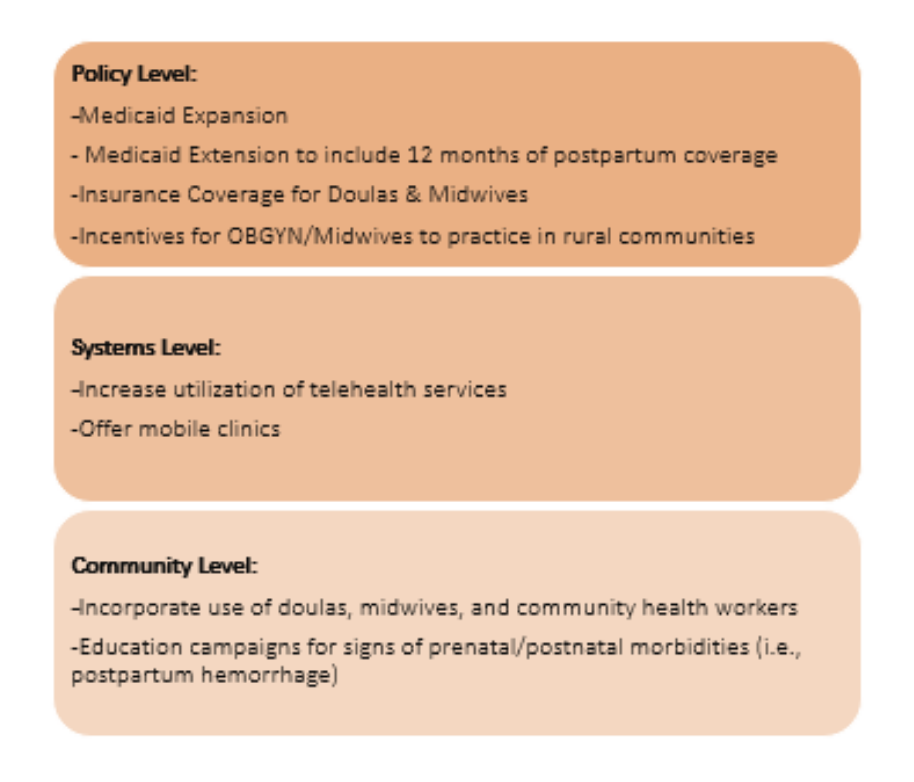Zero Provider Counties: Our Proposed Solution
This post is the conclusion of a three-part series examining the state of maternal care in Mississippi. To read the previous installments and other maternal health research, click here.
“Awareness is not enough.”
Dr. Nakeitra Burse
Although awareness of the maternal health crisis has recently increased due to pressure from the White House, led by Vice President Kamala Harris, states like Mississippi need to make changes to legislation. These changes should be aimed at improving access to resources and care options, especially for Black mothers living in maternity care deserts. With Mississippi’s government dedicated to promoting “the health and wellbeing to all who call Mississippi home,” it would seem both obvious and imperative to adopt policies that increase insurance coverage to protect the lives of mothers and babies across all racial groups.
Policy needs to be matched with changes at both a system and community level to match care-seeking behaviors with affordable care alternatives since obstetric providers and facilities remain scant in most of the state. Providing incentives to obstetric providers to practice in rural settings through financial incentives, like loan forgiveness, has been a strategy utilized across the United States and should be considered in counties designated as maternity care deserts in Mississippi. Improving care through tele-health and mobile clinics has the propensity to meet women where they are, in terms of physical location and readiness. Although tele-health cannot replace the presence of an obstetric, especially during childbirth, coverage for the spectrum of reproductive services could increase care utilization in the prenatal and postpartum periods.

Other recommendations to improve care coverage for expectant mothers include incorporating the use of doulas, midwives, and community health workers. Currently, doulas and midwifery services are excluded from several insurance providers, as well as Medicaid, yet have been demonstrated to improve maternal health outcomes especially for Black mothers. Failing to enact changes from policy to systems to community levels has a lethal cost for mothers and infants, specifically when living in the counties designated as maternity care deserts in Mississippi.




No Comments